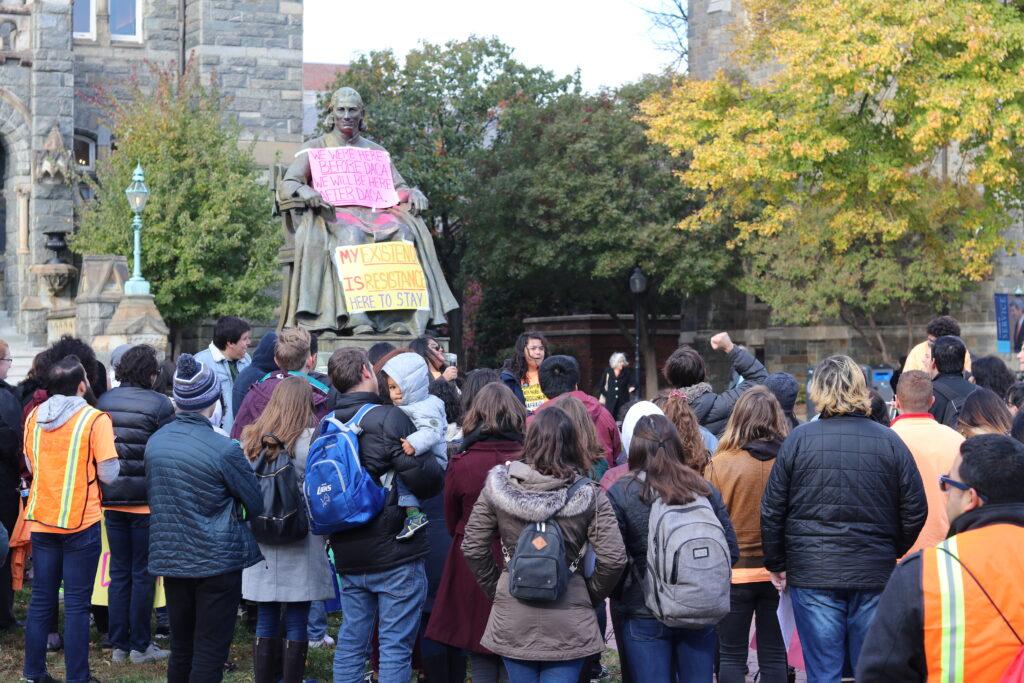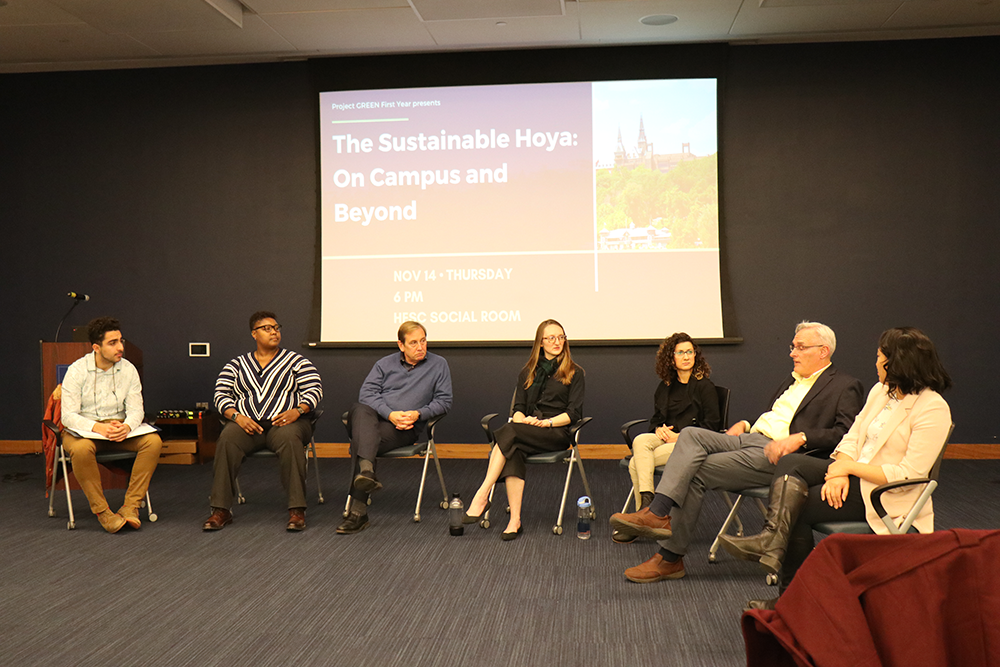Universities should provide institutionalized support to their students without documentation, panelists said at a Nov. 7 conference on Georgetown University’s campus organized ahead of Supreme Court hearings on the Deferred Action for Childhood Arrivals program.
Many students without documentation rely on DACA, an immigration policy that allows some people who came to the country without documentation as children to receive a two-year period of deferred action from deportation, obtain work permits and attend college. The program, enacted by former President Barack Obama, was ended in 2017 by President Donald Trump, but the Supreme Court began hearing arguments on the legality of Trump’s decision Nov. 12. As of right now, current or former DACA recipients are still able to apply for renewals.
Financial inequality, in addition to other roadblocks, prevents people without documentation from accessing higher education as easily as U.S. citizens. The disparity violates Article 26 of the United Nations’ Universal Declaration of Human Rights, which states that higher education should be equally accessible to all on the basis of merit, according to Executive Director of Freedom University Laura Soltis.
“For people who are moving across borders, it’s important that they know that regardless of where they were born or what borders they cross, they have fundamental human rights by virtue of being human,” Soltis said.
Freedom University, a school for students without documentation that provides tuition-free college preparation classes and scholarship assistance, was founded by a group of students without documentation, student allies, immigrant rights activists and four professors at the University of Georgia. The group’s formation came as a response to the 2010 decision by the Georgia Board of Regents to ban students without documentation from attending Georgia’s top five public universities or receiving in-state tuition, according to the university website.

Similar admissions bans have also been passed in Alabama and South Carolina, limiting students’ without documentation access to college, many of which have faced appeals. Because of these admissions bans, many DACA recipients hold work permits and jobs but are not able to receive higher education, according to Soltis.
“It has normalized a system where a whole population of young people of color can legally drive to their low wage jobs with their driver’s license and their work permit but still can be denied access to a higher education and the right to vote,” Soltis said.
The conference, titled “Pursuits & Persistence: Undocumented Student Success in Higher Education,” was co-hosted by the Institute for the Study of International Migration, a multidisciplinary center that studies multiple dimensions of international migration, as well as by Georgetown’s Center for Multicultural Equity and Access. The panels for the conference in the Healey Family Student Center featured speakers from various universities who discussed the past, present and future of students without documentation in higher education.
Despite DACA’s uncertain fate, efforts across college campuses to support equal education, such as scholarships for first generation college students, can still work to improve students’ without documentation access to education, according to Arelis Palacios, associate director of the Center for Multicultural Equity and Access and associate director for Undocumented Student Services.
“My daily goal is to quite literally make sure that more students are able to access college, able to access educational opportunities beyond undergraduate,” Palacios said.
Georgetown has representatives from 17 different offices on campus who support students without documentation, according to the university website. The university also joined 18 other colleges and universities in signing an amicus brief expressing support for DACA on Oct. 7. The brief identified the contributions and diverse perspectives that DACA recipients bring to the university’s campus and includes the stories of three Georgetown students without documentation.
While Palacios acknowledges that the current system of support for students without documentation at Georgetown is not perfect, she says she hopes that more progress can be made if everyone works together.
“I do the work because I’m human, and I care about human dignity, and I care about what it means for us to do this work,” Palacios said. “We have to recognize that it’s about helping each other, and really, quite literally, engaging in different levels of community care and collective care to support each other.”





















